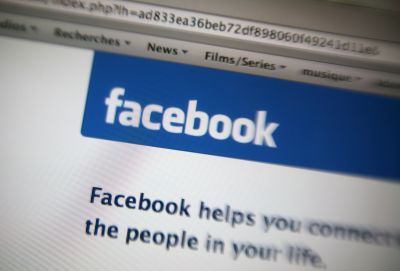Research suggests social media doesn't dominate the travel world

Your support helps us to tell the story
From reproductive rights to climate change to Big Tech, The Independent is on the ground when the story is developing. Whether it's investigating the financials of Elon Musk's pro-Trump PAC or producing our latest documentary, 'The A Word', which shines a light on the American women fighting for reproductive rights, we know how important it is to parse out the facts from the messaging.
At such a critical moment in US history, we need reporters on the ground. Your donation allows us to keep sending journalists to speak to both sides of the story.
The Independent is trusted by Americans across the entire political spectrum. And unlike many other quality news outlets, we choose not to lock Americans out of our reporting and analysis with paywalls. We believe quality journalism should be available to everyone, paid for by those who can afford it.
Your support makes all the difference.Social media may be dominating the world right now, but it's not dominating our travel planning, according to research figures obtained by Relaxnews.
Last week, the "travelhorizons" report co-authored by Ypartnership and the US Travel Association found that 6 out of 10 travelers have visited a mainstream social networking site. The news will not be surprising for many and neither will the uses; 49 percent said that they had uploaded photos or videos and almost a quarter have posted to a blog.
However, a look at the detailed figures obtained Thursday suggests that this social media pervasion hasn't had much of an effect on our travel booking. Only 11 percent of leisure travelers had used Facebook, the most popular social networking site, to ask advice about a destination. Even fewer (four percent) had used MySpace and a negligible three percent had used Twitter. Only one in 20 Facebook users had joined a community with similar travel interests.
When searching for travel deals, the numbers drop even further. Six percent had searched Facebook, two percent had searched on MySpace and two percent had checked Twitter. Ypartnership polled over 1,500 people in October 2009 to compile the results.
The figures will be of interest to travel brands who have invested extensively in social media as a marketing strategy. Most airlines and hotel chains now build Twitter updates and Facebook fan pages into their marketing budget, and a growing number of smaller operators are following suit. Marketers, however, can always look at some high-profile success stories: in 2009, Tourism Queensland's "Best job in the World" campaign used social media and viral marketing to snare free publicity worth an estimated 110 million Australian dollars (€69.5 million Euros).
Join our commenting forum
Join thought-provoking conversations, follow other Independent readers and see their replies
Comments